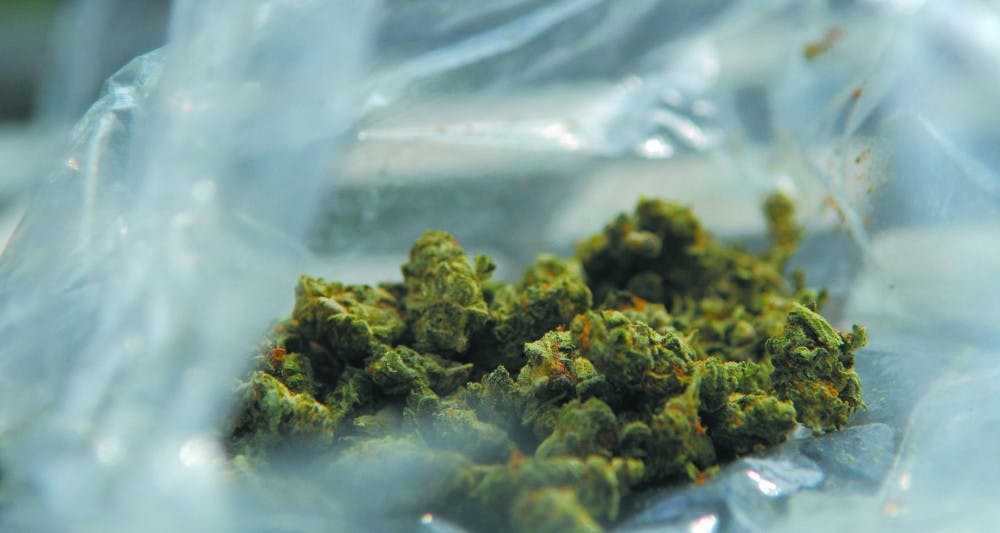
Pennsylvania will soon have the chance to go the route of Colorado and Washington.
State Sen. Daylin Leach has proposed legislation to legalize recreational use of marijuana in Pennsylvania. The Democratic senator, who represents Montgomery and Delaware counties, cited safety concerns, crime and potential tax revenues as reasons for bringing the proposal, which comes in the wake of votes to legalize marijuana in Colorado and Washington.
“We would never, in a rational society, starting from scratch, have the policy we have now,” Leach said in an interview Monday. Prohibition, he added, creates a black market in which buyers don’t know what they’re getting — which can lead to especially harmful outcomes if the marijuana is laced with other, more dangerous drugs, such as PCP.
In addition, he argued that there is no reason to punish people who make bad health decisions.
“These are people who have done nothing to anybody, except they have decided to ingest an intoxicant,” Leach said.
However, even if pot were to become legal in Pennsylvania, Penn students wouldn’t have free reign to smoke. Marijuana usage is prohibited by University policy — and would remain so under the change.
“Regardless of state laws, institutions that receive federal funding (such as financial aid) must adhere to federal laws,” Julie Lyzinski, director for the Office of Alcohol and Other Drug Program Initiatives, said in an email. Because using marijuana is banned by federal law, “regardless of Pennsylvania law, marijuana will remain illegal and against University policy at Penn.”
In addition, there might still be an underground market for pot at Penn even if it were legal.
“You can always sell it for cheaper,” said a College sophomore, who wished to remain anonymous because of legal implications. He said that he would consider buying marijuana at a dispensary, but “it would depend on price and quality.”
While Leach said he had several supporters of his bill, which he plans to introduce within the next two weeks, the chance of it becoming law is slim. Republican Gov. Tom Corbett has vowed to veto the bill should it come to his desk, saying that marijuana is a “gateway drug.”
“[The governor] has personally witnessed the devastation of illegal drugs on Pennsylvania communities throughout his career [as a prosecutor],” Janet Kelley, a spokesperson for Corbett, said. “He does not believe in loosening the restrictions on illegal drugs.”
However, Teresa Franklin, assistant professor of neuroscience and researcher at the Center for the Studies of Addiction, said the scientific literature regarding pot usage leading to the use of more dangerous drugs is “highly controversial,” and that any “gateway” effect is likely due to association with people who do other illegal activities.
However, she added that there were risks to marijuana usage. Studies have shown marijuana dependence is a diagnosable condition that often causes real effects on people with dependencies.
“They don’t know there’s a life beyond sitting on the couch with their buddies getting high,” said Franklin, who works with people who have marijuana dependencies. “One day [they] wake up and say, ‘I did not achieve what I wanted to achieve.’”
While the estimated prevalence of marijuana dependence is 25 percent among college students, only about 8 percent seek treatment, she added.
However, proponents of legalization have said the government shouldn’t have the authority to prevent people from making poor health choices.
“Morally, I think it makes no sense to tell people what they can put in their bodies,” College sophomore and Penn for Liberty founder Tony Cotzias said. Penn for Liberty hosted the “End the War on Drugs Bake Sale” last year — which Cotzias said brought many positive reactions.
He also condemned the number of people in prison due to violations of drug laws — a point Leach also raised.
There are over 5,000 arrests for marijuana crimes per year in Pennsylvania, Leach said, which costs the state $350 million per year. He estimated that by ending prohibition and taxing the sale of marijuana, Pennsylvania could “net well over a billion dollars a year.”
He added that regardless of whether this effort is successful, he believes legalization is inevitable.
“In 15 years … [marijuana prohibition] will be some quaint thing of the past that will be the subject of exhibitions at the Constitution Center,” he said. “People will think it’s crazy that it was ever illegal.”
The Daily Pennsylvanian is an independent, student-run newspaper. Please consider making a donation to support the coverage that shapes the University. Your generosity ensures a future of strong journalism at Penn.
DonatePlease note All comments are eligible for publication in The Daily Pennsylvanian.








